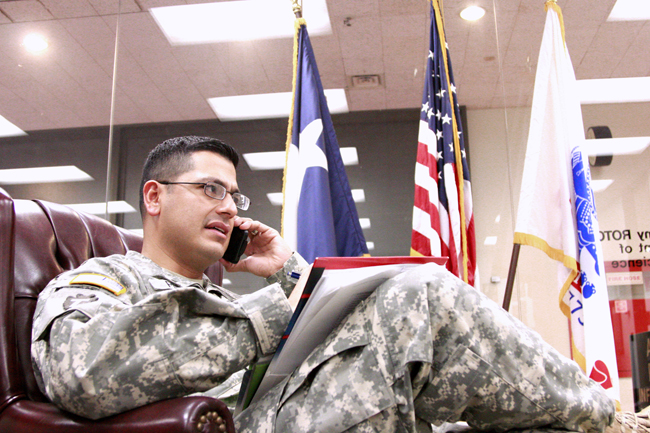Phone scams in foreign airports threaten to take advantage of UT ROTC graduates and other military personnel as they travel between the United States and their theatres of duty.
A class action lawsuit was filed on Monday against two companies that operate pay phones at the German Leipzig-Halle airport, attorney John Mattes said. The lawsuit aims to compensate the thousands of soldiers that were charged calling fees as high as $615 per minute, Mattes said.
The lawsuit alleges that Centris Information Services, LLC, of Longview, Texas and BBG Communications, Inc., a firm based in San Diego, Calif., profited by taking advantage of members of the armed forces when they called home, Mattes said.
According to court documents, BBG chose to impose extremely high fees on military personnel who were using one of their few opportunities to contact family and friends back home.
“BBG is making buckets of money and it’s been taken out of the back pockets of soldiers,” Mattes said.
The lawsuit has not deterred BBG from continuing to charge excessive fees, he said.
Associate professor and Army major Jose L. Reyes said soldiers need to be aware of scams targeting them in the U.S. and abroad.
“We try to, whenever time is allotted, explain some things [to soldiers],” Reyes said.
Reyes said ROTC faculty caution students against risky payday loans, predatory lending by local banks and car loans with interest rates as high as 30 percent, all of which sprout up around military communities.
Soldiers know that calling home can be expensive, but they often think that talking with their loved ones is worth the high cost, Joseph Kopser, lieutenant colonel and military science professor, said.
“Soldiers are just like any other citizen, trying to be smart with their money and avoid scams when they can,” Kopser said.
When traveling home, neither soldiers nor their family members know exactly when or where their unit will arrive, he said. For that reason, members of the armed forces try to take advantage of any opportunities to contact their family while in transit, he said.
Kopser said air transportation for military forces acts more like a bus system than a commercial flight.
“They just keep running the charter flights, it’s basically like waiting for a bus on the corner,” Kopser said. “They obviously try to plan [their schedule] out but when the plan breaks down, you just catch the next group.”
The military tries to keep travel schedules classified in order to protect troops, making travel plans even more uncertain, he said. A plane full of American soldiers would be a big target for our enemies.
“The schedule is kept secret for security reasons,” Kopser said. “We encourage them to not be specific [when communicating with their family] when they’re headed home.”
BBG Communications and Centris Information Services deceptively exploit that uncertainty and the soldiers’ desire to contact family, Mattes said.
Reyes and Kopser said they were not aware of the scam or the lawsuit, but they were confident that the military would protect its members.
“If any phone bank is suspected of being a scam in the U.S. or overseas, the chain of command tries to push that out as soon as possible,” Kopser said.
BBG Communications declined to comment on this story. Centris Information Services has disconnected their phone number and was unavailable for comment.
Printed on, February 7, 2012 as: Soldiers scammed by calling fees















